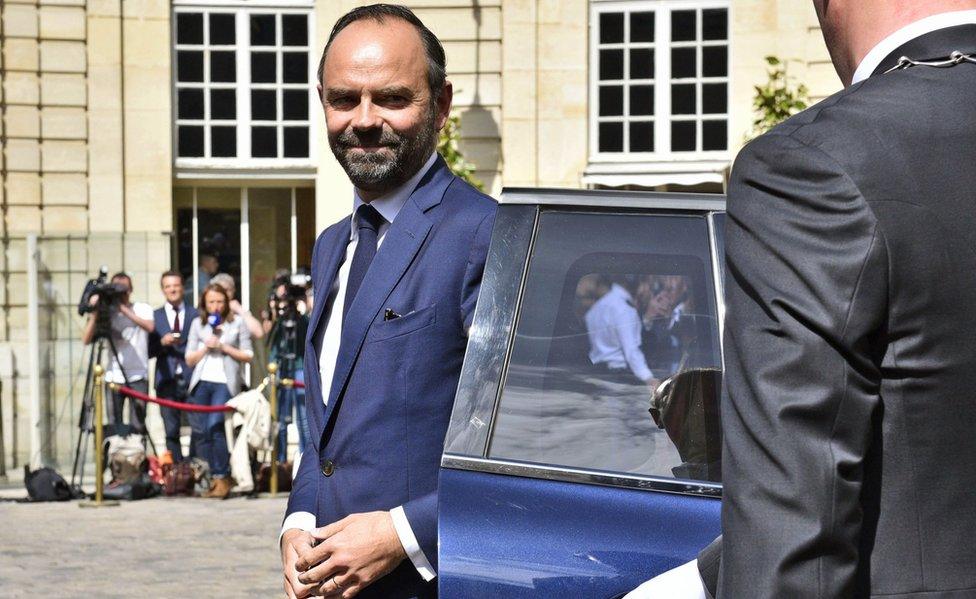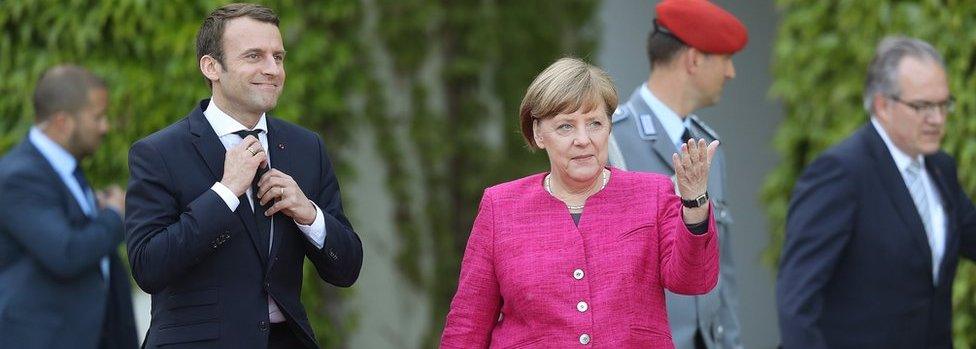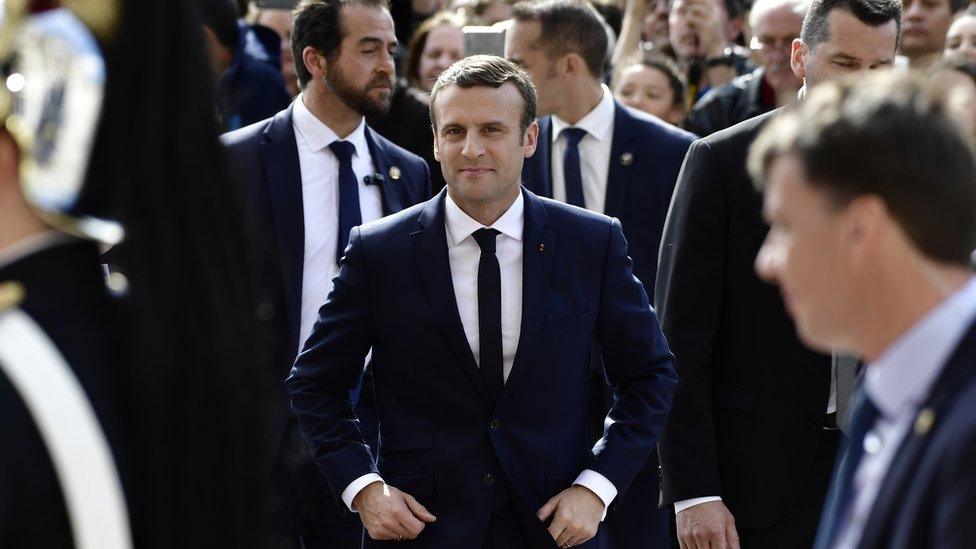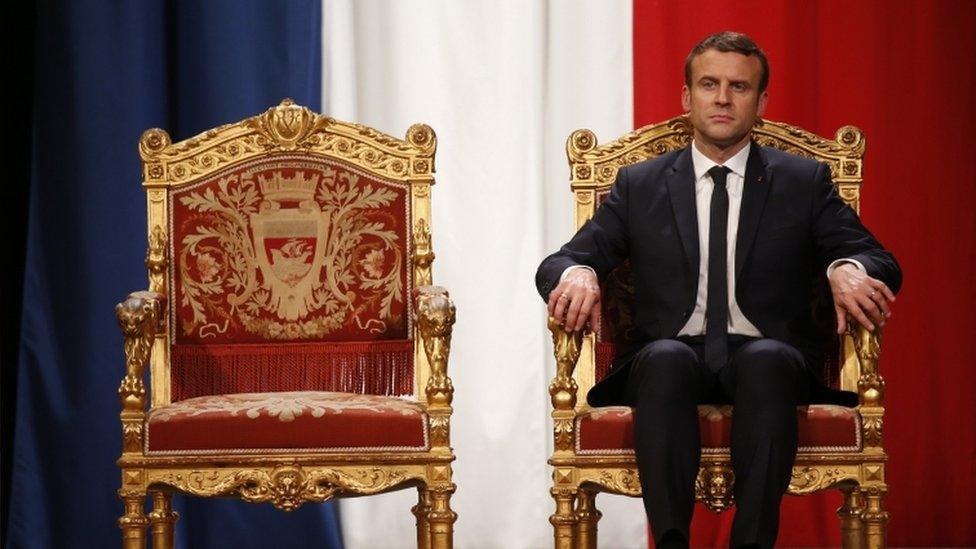France's Macron names Republican Philippe as PM
- Published

Edouard Philippe has for years been close to leading Republican Alain Juppé
President Emmanuel Macron has chosen centre-right mayor Edouard Philippe as France's new prime minister.
Mr Philippe, 46, is not from the president's new centrist party but from the centre-right Republicans.
The choice is seen as an attempt to draw in key figures from both the right and left of French politics.
On his first full day as president, Mr Macron later travelled to Berlin where he was welcomed by German Chancellor Angela Merkel.

Mr Macron chose Berlin for his first foreign visit as president
He was greeted with full military honours.
At a press conference, the French and German leaders later said they would work together on defence co-operation, reforming the eurozone and reducing bureaucracy.
Ms Merkel said the EU depended on France being strong, and said that she and Mr Macron shared a "joint conviction that we are not only going to deal with the British exit from the European Union, but we also need to deepen the EU".
She had previously sounded caution on Mr Macron's eurozone proposals, saying: "There are many proposals which have been on the table for years. Of course, I will discuss this with him and I will say let's be open, so we can achieve things together, not get stuck on what can't be done."
A finance ministry spokeswoman was less diplomatic about the chances of progress on eurozone reform, pointing out it would require treaty change "which is at the moment not realistic".
Speaking specifically about France, Mr Macron said he would work towards social, economic and educational reforms in the next few months.
Who is Edouard Philippe?
The naming of a new prime minister, Mr Macron's first big appointment, came after hours of fevered speculation in France and a day after he was inaugurated as president.
Already tipped as favourite for the job, Edouard Philippe, mayor of the northern port city of Le Havre, has long been close to Alain Juppé, who was runner-up in the race for the Republican presidential nomination in November 2016.
Not a widely known politician in France, he has for years been seen as Alain Juppé's right-hand man and backed his unsuccessful 2016 bid to secure the centre-right presidential nomination. He quit the Republican campaign when the chosen candidate, François Fillon, was engulfed in a "fake jobs" investigation.
Earlier this year he likened Mr Macron's treatment of his earlier mentor, President François Hollande, to Brutus's despatch of Julius Caesar.
Before he became mayor of Le Havre, he worked in the private sector and co-wrote a political thriller with Gilles Boyer, who went on to run the Juppé campaign.
Why reaction is mixed
Several weeks ago, Mr Macron tweeted, external that he was keen on selecting a woman prime minister, and there was some disappointment on social media that he had so far failed to choose a woman for any cabinet role.
In Mr Philippe's own Republican party, reaction to his appointment was mixed. Alain Juppé praised the new prime minister as a man of "great talent". Another leading Republican, Bruno Le Maire, welcomed the appointment as an attempt to overcome old political divisions.
But party secretary-general Bernard Accoyer said there was no political agreement between the two parties. "Will this new prime minister support the president's En Marche candidates... or the candidates of his political family?" he asked.
Another Republican, Eric Ciotti, accused the new prime minister of taking part in Mr Macron's bid to "destabilise" the centre right.
President Macron faces crucial parliamentary elections next month and may need the support of the centre right to push through his planned economic reforms.
"Divisions have to be overcome" - newly-elected President Emmanuel Macron
His new party, La République en Marche (Republic on the move), announced last week a list of 428 candidates for the June vote, half of whom were women. Only 5% were MPs in the outgoing French parliament - and those MPs were all from the Socialist left.
- Published28 August 2018

- Published15 May 2017
